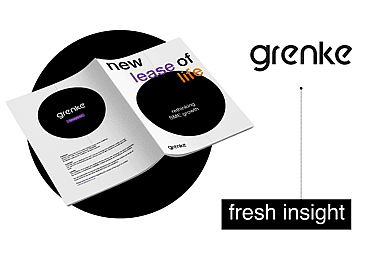What is leasing?
Before we start, it might be useful if we offer a quick definition of what a lease is.
A lease is a legal, binding contract under which one party agrees to rent equipment owned by another party. It guarantees the lessee use of the equipment, and it guarantees the property owner regular payments for a specified period in exchange.
In short, it means businesses can access tools and technology they might otherwise not be able to afford in a single lump sum.
But enough about that. Let’s talk about how it can be used to build business resilience.
How can leasing create business resilience?
From its humble origins, leasing began where people would lease one another a horse and cart, it’s grown from strength to strength.
The global leasing market is expected to grow from $1.35 trillion in 2021 to $1.53 trillion in 2022 – a growth rate of 12.9%. For the UK market, this growth comes during a time in which many are predicting a pending recession.
Yet this speaks to the power of leasing in building business resilience, as decision makers seek ways to ensure their businesses are prepared for the future. What this growth means is that, more and more, business leaders are exploring leasing as a way of building resilience and as an alternative to paying for products and services outright.
But why is this? Well, let’s look at exactly how leasing can help make a business more resilient.
Five ways leasing creates a resilient business
1. Leasing helps businesses retain liquidity to respond to future events
Cash flow is crucial to keep a business resilient. Entire industries can sometimes change overnight, and having enough funds available for a rainy day can make all the difference. Yet 60% of small business owners say cash flow has been a problem for their business.
The difference between leasing a product vs. purchasing it is that there’s no lump sum to pay up front when leasing. Instead, businesses owe smaller, more manageable monthly repayments, agreed at the start of the Agreement term. Which means more cash remains within the business for responding to other, unforeseen events. Events such as a global pandemic, which forces us all to invest in protecting our staff and facilitate working from home.
2. Leasing keeps businesses at the forefront of the latest technology
Having the latest technology is vital to ensure teams are at their most productive and that software systems are at their most secure. Companies across the UK are looking to invest in their security networks in order to meet compliance standards. But legacy hardware simply doesn’t have the technology to support the latest security software updates.
As a general rule of thumb, most businesses replace their tech every five years. Conveniently, leasing allows you to replace your products every few years, meaning a business can keep itself at the forefront of technological advancement without massive upfront costs.
The power of technology cannot be underestimated. A tech-enabled team communicates better, works more efficiently, and feels more empowered in the workplace than a team with legacy technology. And, vitally, the latest security means a business is far less vulnerable to cyberattacks, and able to follow compliance regulations to a tee.
3. Leasing allows a business to upscale or downscale with greater flexibility
Whether you’re looking to upscale your business and acquire more equipment, or downscale and get rid of some your unwanted tech, leasing allows you to access equipment you might not be able to afford and to adapt your business when your business’ needs change.
Perhaps a business is going through a period of growth, and are looking to diversify its assets – or, it may be downsizing and looking to focus on a core set of assets. The benefit of leasing is that a contract’s end of term options mean decision-makers can control how many assets they want to retain, or even expand into, at the end of the lease period.
4. Leasing frees up a business to focus on internal improvement
Time is a business’ most valuable resource. When a business leases a product from a manufacturer through grenke, it can pay for maintenance and the equipment all in one invoice – grenke secures the equipment, and the supplier ensures its maintained.
Not only does this mean a business doesn’t have to spend valuable time dealing with maintenance, it also doesn’t have to spend time toiling over multiple invoices and contracts. A resilient business is one which can spend its time and cash wisely.
So, while equipment maintenance and contracts might not be the most exciting thing you’ll read about today, a business that’s able to invest time and money into training, digital skills, and hybrid working policy is no small matter by any means.
5. Leasing isn’t just about resilience – it’s about growth
When times are difficult, resilience is essential. But what about when the good times arrive? Well, that’s when leasing comes into its own. Leasing as a practice frees up time and cash flow, which in turn enables a business to focus on customer acquisition – improving sales, marketing, and customer experience.
When a business is undergoing rapid growth, it might need to diversify its products and services. As previously mentioned, buying specialist equipment outright can be expensive and time consuming. And as any business leader will tell you, top class equipment and healthy cash flow are the perfect conditions for growth.
Make your business resilient with grenke
Resilient businesses aren’t just prepared for times of adversity. They also stand themselves in the best stead to maximise on their growth when the economy is booming. We work with hundreds of partners, connecting them with businesses that are looking to expand their own businesses and capitalise on the benefits of leasing.
Want to learn more about leasing with grenke? Start your leasing journey today and be on your way to securing a more resilient business without boundaries.


